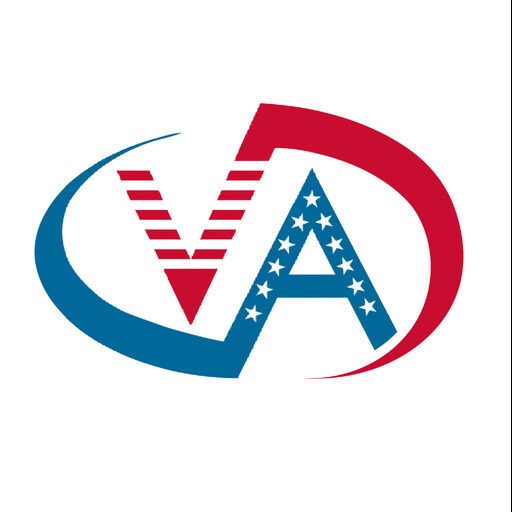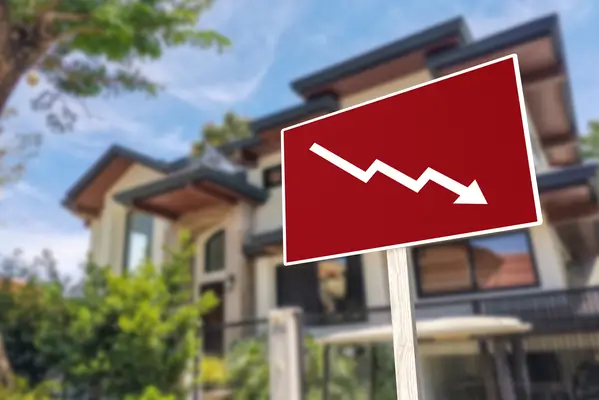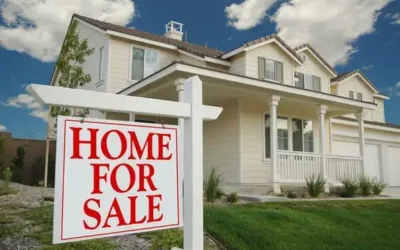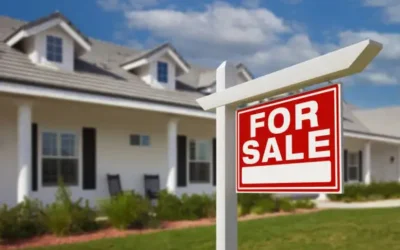The housing market has been a hot topic lately, with prices skyrocketing, mortgage rates climbing, and whispers of a possible market downturn.
Veterans interested in using their VA benefits to purchase a home are understandably cautious—no one wants to make a big investment only to see property values drop soon after.
In this article, we’ll break down what’s really going on in the housing market, why experts are both optimistic and cautious, and what Veterans need to know to make informed decisions.
The Current State of the Housing Market
To understand where the market is headed, it’s essential to look at where it stands now. Over the past few years, housing prices have been on a steep incline, driven by a mix of high demand and low supply. Interest rates, too, have had their own impact, pushing some buyers out of the market while others rush to lock in rates before they rise further.
- Median Home Price: As of the latest data, the median home price in the U.S. stands around $416,000, reflecting an increase of about 17% compared to the previous year.
- Mortgage Rates: Mortgage rates have climbed, with the average 30-year fixed mortgage rate reaching around 6.5%. For Veterans using VA loans, rates are typically a bit lower but still reflect the general market trend.
Let’s look at these factors in a simple table:
| Factor | Data (2026) |
|---|---|
| Median Home Price | $416,000 |
| 30-Year Fixed Rate | 6.5% |
| VA Loan Rate | Slightly lower than market |
Why Are Home Prices So High?
Home prices have been climbing for a few key reasons:
- Limited Housing Inventory: Construction has lagged behind demand, especially in affordable housing sectors, creating a squeeze on available properties.
- Rising Demand: Low mortgage rates in the past few years encouraged buyers to enter the market, further increasing competition.
- Investors Entering the Market: Many properties are being bought by investors and rented out, reducing the number of homes available for potential buyers.
Could a Housing Crash Be on the Horizon?
The question on everyone’s mind is whether the market is due for a correction or even a crash. While no one can predict the future with certainty, there are signs pointing in both directions.
Factors That Could Lead to a Crash
- High Mortgage Rates: Rising rates make borrowing more expensive, which could lead to decreased demand. Fewer buyers mean prices may stabilize or even drop.
- Economic Uncertainty: Concerns about inflation, potential job losses, and general economic instability can reduce homebuyer confidence.
- Overvaluation: In some regions, property prices have risen so rapidly that they’re now considered overvalued, raising concerns that these areas could see significant declines.
"In my experience, every market correction has its own unique causes. We’re seeing some early signs of a cooling market, but whether it’s a crash is still up in the air."
Factors That Could Keep the Market Stable
On the flip side, there are reasons the market might simply cool down rather than crash:
- Low Supply: Even if demand slows, the lack of available housing may keep prices from falling too sharply.
- Buyer Demand: Millennials and Gen Z are entering peak home-buying age, creating a steady stream of demand for housing.
- Government Support: The VA loan program and other government-backed loan options help stabilize the market by providing Veterans and other groups with access to affordable mortgages, even in uncertain times.
"Demand might be cooling off a bit, but there’s still a strong underlying need for housing, especially for first-time buyers and Veterans."
Impact of Election Uncertainty on the Housing Market
With the 2026 election just days away, uncertainty around potential policy changes has put the housing market in the spotlight. Veterans considering homeownership or refinancing may find themselves wondering how each candidate’s approach could impact housing costs, mortgage rates, and VA benefits.
Key Policies from the Candidates
Both candidates have highlighted housing and economic policies in their platforms. For example, Vice President Kamala Harris has focused on increasing affordable housing options and making homeownership more accessible.
Her proposals include tax credits for first-time homebuyers, along with incentives for developers to build more affordable housing. Such policies could help ease housing costs, especially in high-demand areas, by gradually increasing supply.
Former President Donald Trump has discussed policies that support a free-market approach to housing. His platform generally leans toward reducing regulations to allow for faster building processes, which could also address the supply shortage, though through different methods than proposed by Harris. Additionally, he advocates for maintaining favorable tax treatments for homeowners, which could benefit Veterans who own property.
How Election Outcomes Might Affect VA Loans
Each candidate’s stance could indirectly influence the demand for VA loans, especially if policies affect housing prices or the availability of affordable homes.
For instance, a focus on affordable housing could result in more entry-level homes, making it easier for Veterans using VA loans to find a property that meets VA requirements. A deregulated market, on the other hand, could speed up housing developments, potentially helping to close the supply gap in high-demand regions.
Veterans interested in using VA loans might consider monitoring post-election policy changes and talking with their lenders. While VA loan benefits are federally backed and unlikely to see direct changes, the broader economic environment could still affect interest rates and housing prices.
What Veterans Should Consider Before Buying
If you’re a Veteran weighing your options, you’re not alone in feeling cautious. Here are a few things to think about:
1. Take Advantage of VA Loan Benefits
VA loans offer unique advantages, including zero down payment options and competitive interest rates. These perks make it easier for Veterans to enter the housing market without needing to save for a large down payment.
2. Evaluate Your Long-Term Goals
Ask yourself if this is a long-term investment or a short-term purchase. If you plan to stay in your home for at least five years, you’re more likely to ride out any market fluctuations without taking a significant loss.
3. Stay Informed About Market Trends
Keep an eye on local market conditions. National trends are useful, but real estate markets vary widely by location. Research recent sales in your target area and speak with real estate professionals who understand the market dynamics in that region.
Comparison of VA Loans vs. Conventional Loans in the Current Market
Understanding the difference between VA loans and conventional loans can also help Veterans make informed choices. Here’s a quick comparison:
| Feature | VA Loan | Conventional Loan |
|---|---|---|
| Down Payment | $0 | 5-20% |
| Mortgage Insurance | None (for VA-eligible borrowers) | Required if down payment < 20% |
| Interest Rate | Often slightly lower than conventional rates | Higher than VA loans |
| Credit Requirements | Flexible, often lower than conventional | Typically requires higher credit |
FAQs About the Housing Market and VA Loans
Is now a good time to buy a home with a VA loan?
It depends on your financial situation. If you’re buying long-term, VA benefits can help you secure a home affordably, even if the market fluctuates.
Will VA loan rates go down soon?
VA rates are tied to overall mortgage trends, which are currently high due to inflation and economic factors. Rates might stabilize but are unlikely to drop significantly in the short term.
Can a Veteran use a VA loan to buy a second property if the market crashes?
VA loans are typically for primary residences. However, you may be eligible for another VA loan if your previous loan is paid off or the property is sold.
How does a housing crash affect VA loan eligibility?
A market crash wouldn’t impact your eligibility, but it could change the types of properties and prices available.
Are there any downsides to buying now with a VA loan?
Higher rates may mean higher monthly payments. Make sure the mortgage fits your budget, even if rates stay high for a while.
What should Veterans consider when choosing between VA and FHA loans?
VA loans offer lower costs and no mortgage insurance, but FHA loans might be easier to qualify for if your credit score is low.
How long should Veterans plan to stay in their homes to weather market changes?
Ideally, plan to stay at least five years to ride out any short-term market fluctuations.
Do VA loans have limits based on property values?
There’s no maximum loan amount for VA loans, but there are limits on what the VA guarantees. Check with your lender to understand how these limits apply.
What Needs to Happen for Rates to Drop?
For mortgage rates to go down, a few key things would need to happen:
- Lower Inflation: Inflation plays a big role in mortgage rates. As long as inflation is high, rates are likely to stay elevated.
- Stabilized Economic Conditions: If the economy stabilizes, lenders may feel more confident in lowering rates. Until then, rates are expected to remain high.
"The Fed’s actions alone can’t control mortgage rates—they’re influenced by a complex mix of economic factors. We’d need to see significant changes in inflation and employment data for rates to drop in any meaningful way."
The Bottom Line for Veterans
For Veterans, the housing market offers unique advantages and some challenges. VA loans make homeownership accessible even in a high-rate environment, but it’s essential to go in with a plan.
Think about your long-term goals, financial stability, and how much risk you’re comfortable taking on. With a VA loan, you have certain protections and benefits that make buying a home more manageable, even if the market is turbulent.
Staying informed, planning carefully, and considering the advice of professionals can help you make the best decision.

The VA Loan Network Editorial Team is comprised of dedicated mortgage specialists and financial writers committed to providing veterans and service members with accurate, up-to-date information on VA loan benefits, eligibility, and the home-buying process.








